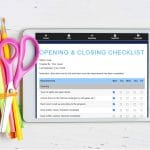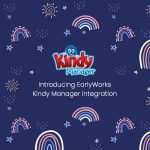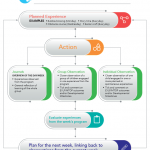Communicating and building relationships with families
Family communication should be a major focus for educators and administrators in both long day care and before and after school care. The fact that there is a whole quality area devoted to it (Quality Area 6 Collaborative partnerships with families and communities) should be evidence enough that it’s something we need to do well.
While we might think of communication as a two-way street, with both parties taking equal responsibility for initiating and maintaining open communication, according to Arthur, Beecher, Death, Dockett and Farmer (2015) in their text ‘Programming and Planning in Early Childhood Settings’, “Educators need to take the initiative in promoting partnerships with families. It is the educator’s responsibility to develop strategies and confidence in effective communication with all families, not just the families with whom they feel comfortable or the families who initiate communication, and to provide support for all families.”
So it is up to us as educators to ensure we are communicating with every family in our service, not just the ones who pop by regularly to chat about how their child is going, or the families who regularly sing our praises and thank us for all that we do… We need to actively engage with families who are time poor, who are shy, who are from cultures that we might not be familiar with, or who may not speak the same language as us.
EarlyWorks supports educators and administrators in communicating and then building relationships with all families😊.
Communicating with families for whom English is not a first or preferred language is made easier with EarlyWorks:
- Add photos with simple captions to observations and journals highlighting the learning being evidenced (1.3.3, 6.2);
- Regularly share photos in EarlyWorks of children achieving milestones, interacting with other children, trying something new. (By uploading photos to the child’s room and selecting that child’s name) (1.3.3, 6.2);
- Make time to talk through observations, journals and daily communications with families and their children when they visit the service. Then using the family’s login, add the family’s feedback/reactions directly to the observations and journals to capture precious feedback (6.1, 6.1.1, 6.1.3).
EarlyWorks also supports educators in developing relationships with families from different cultures:
- Create opportunities for families to share their culture, stories, special days and then invite families along using the Event Calendar (6.1, 6.1.2);
- Encourage families to share aspects of their culture (food, festivities, costumes…) using the comments/image attachments (6.1.2);
- Use the Events Calendar in EarlyWorks to acknowledge special days and festivals that are culturally significant to families in your service throughout the year (EYLF/MTOP Practice 6 Cultural Competence).
EarlyWorks also makes it easy to communicate with families who are time poor:
- Families can easily access EarlyWorks at a time that works for them, on any device that connects to the internet (1.3.3, 6.1.1);
- Comments can be added, feedback given, tasks completed, well after the service has closed for the day. Then educators can respond the next day (1.3.3, 6.1);
- This ensures families can still contribute to decision making and have their voices heard, even if they haven’t been able to make face to face contact during business hours (6.1.2).
Using EarlyWorks, educators can initiate and sustain communication with all families.







